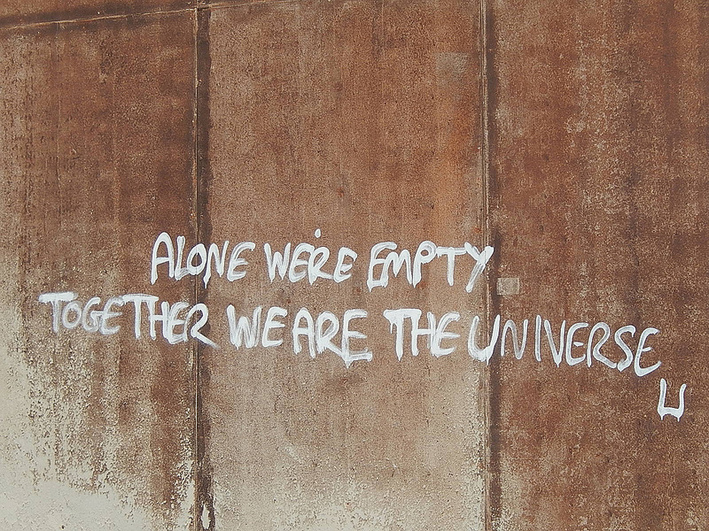|
It's one of the things that I get asked about the most these days and it seems that everyone has noticed it, from home-businesses, local bands to small-businesses and big brands. "Why aren't all our followers seeing our posts and why isn't my page gaining followers anymore?"
By now, the vast majority of people I speak to have seen a massive drop in engagement on their Facebook pages. And I do mean massive. When Facebook first debuted pages, it was a golden age for gaining fans, as you could guarantee that your content would show up in the newsfeed of every single person who had clicked that 'Like' button on your page. But with this amazing reach, unsurprisingly came a lot more pages, jamming content of all kinds into the newsfeed and creating a massive free-for-all land grab for fans. In late 2012 Facebook stepped in, throttling the reach of all pages so that only 16% of page fans would actually see the content page owners posted. Facebook openly admitted; "We expect organic distribution of an individual page's posts to decline over time as we work to make sure people have a meaningful experience on the site." This created much debate amongst social media professionals as to the longevity of Facebook for marketing, as the platform moved towards a pay-per-view model, floated on the stock exchange, offered paid advertising to pages and developed the 'Edgerank' algorithm. All of which seemed designed to throttle traffic, engagement, visibility and growth of Facebook pages. By late 2013 many people I worked with were reporting poor responses to any of their Facebook efforts. In-depth analysis by some of the larger social monitoring organisations revealed that organic reach dropped as low as 6% on average, but larger brands with fans numbering more than 500,000 saw a greater drop to around only 2% of their audience. So what's the answer? Facebook's solution? Paid advertising. Their suggestion being that big brands should consider paying for Facebook reach as part of their marketing budgets. Facebook has shareholders to look after now, after all. But how does this affect the little guy, the non-profit organisation or those of us that simply don't want to pay to reach people? The vast majority of social media professionals will tell you that organic reach is a thing of the past, that paid advertising is the way forward. You've probably already seen all the sponsored posts on Facebook offering the miraculous information on 'how to beat the system', 'how to make the most of your paid advertising' or 'foolproof systems for converting your advertising into likes'. I'm going to let you into my own little secret right now. No-one really knows for sure how Facebook determines what appears in the newsfeed and I mean no-one. Speak to Facebook's own engineers and they all have a different view on how it works. So there is no mathematical equation to combat Facebook's algorithms. There simply can't be. The Edgerank algorithm that became such a dirty word to page owners has evolved into a system that now weighs over 100,000 separate factors when determining what people see in the newsfeed and I'm pretty sure that Facebook isn't going to be telling anyone what those 100,000 factors are. The sure-fire results systems are a myth and there has even been recent research that calls into doubt whether paid advertising or paid reach actually reaches the number of fans that it says it does. Facebook is already telling us So instead of speculating, abandoning all hope and paying through the nose for reach, let's think about what we do know. We already know that the Edgerank algorithm was built on 3 founding principles:
Next it's worth thinking about your own experience of Facebook and a little bit about what we know or see from using the platform regularly. What do you see happening with your own or other people's posts? Think a little about why some posts are clearly visible and somehow all your friends have seen them, whilst some disappear into obscurity with no-one seeing them. From my personal experience this works particularly well if you put yourself in Facebook's shoes, what content would you want people to see if you were Facebook? I'd be asking myself a few questions:
It comes back to the quote from Facebook right at the start of this article which included; "We work to make sure that people have a meaningful experience". Just think about that for a moment, 'a meaningful experience'. This means that you're going to need to get to know your audience a lot better if you're going to start delivering content that they find meaningful and that enriches their use of Facebook. Just think about that for a while, perhaps comment with your thoughts, then in my next blog post I'll tell you how I'd do it.
0 Comments
I remember being a teenager studying 20th Century history at GCSE level and the teacher's favourite phrase, that he repeated to us over and over, was "history is written by the victors". He used the phrase to encourage us to be more objective and to consider other sources when trying to put together the whole picture to accurately present historical events.
Still, the phrase is potent and to a certain extent true as far as military history is concerned. Our records of the World Wars are predominantly kept by the Allies. The Napoleonic wars were largely reported by the British. Accounts of the American Civil War were mainly written by the victorious North. And so on throughout recorded history. This got me thinking. Global communications and media have brought us closer together. Today, media can travel across continents in a heartbeat, where before the same message could have taken days or even weeks. Digital publishing and social media mean that you can tell your story online and reach an audience of millions in a very short space of time. But is this affecting how we record our history? I believe it is, and for the better. Consider current conflicts across the world, conflicts that historically would have gone largely unreported without digital communication methods. The border skirmishes in Ukraine, the civil unrest in Syria and Iraq, the rocket attacks in Israel and Gaza, even the current stand-off between protesters and Police in Ferguson, USA. Of course, the usual media and journalism agencies are firmly ensconced in all these conflicts and there are always regular reports from the governments and law enforcement agencies sharing their version of events. But today, there's a third side to all these stories. Social media has given a voice to those directly affected by events, to those at the forefront of unrest, displaced from their homes or actively taking part in protests. We've already seen a young girl live-tweeting and sharing video footage during the shelling of Gaza by Israel. We've seen people in Gaza offering protesters in Ferguson, USA advice on social media about how to deal with tear gas and rubber bullets being widely used by the Police there. We're also seeing celebrity support for protesters and appeals for the violence to come to an end. News agencies, governments and historians are no longer responsible for writing and recording the history of their nations or the world in general. The people of the world are using social media and digital media platforms to tell their own story, making sure their voices are heard and in essence giving us their own version of what will become our history. If history is written by the victors, then the commentary and foreword will be written by the people on social media. I attended a local networking event this week, with the usual mix of local businesses, entrepreneurs and consultants. I love these meetings, purely because of the mix of people and their stories. However, whilst making small talk and introductions with a few of the other networkers, I noticed an elderly gentleman stood on the fringes of the conversation on his own. He was very well dressed, very upright, almost military and held himself like a classic gentleman.
I'm always curious about peoples' stories and I was willing to bet that he had a great story and some history to share. So I left the main buzz of the meeting, wandered over, extended a hand and introduced myself. He shot me a warm smile, shook my hand and invited me to sit. We chatted briefly about ourselves before he asked me what I did for a living. As I told him, his smile grew and he chuckled, shaking his head. I have to admit to being a little puzzled. He read the puzzlement on my face and basically told me that his business couldn't possibly benefit from social media or having an extended presence on the internet. They'd had a consultant visit before who talked in numbers, conversions and sales funnels, which he wasn't the slightest bit interested in. He explained that he had a website that showed his services and products and that was all he needed, the quality spoke for itself. A bold statement perhaps, but great that he had such confidence in his products. Rather than argue the benefits of social media with him, I asked him instead to tell me how he started his business. How he got from there to where he is today. There was a gleam in his eye as he recounted the history of his business. A family enterprise started by his great-grandfather as a tailor several generations ago that grew into several shops in the same region. He explained how the business had survived both world wars, economic downturns, family hardships and personal tragedies. He took great pleasure in telling me how, although there is only one shop today, they still keep to the same values his great-grandfather instilled in the business all that time ago. He told me how his son and daughter run the business day-to-day, although he still keeps his hand in on the tailoring front. He went on to say that they send him to these events to meet other business people, but he doesn't really enjoy it. I chuckled to myself and suggested that he seemed to be enjoying telling me his story. He smiled and agreed, telling me that he loves recounting the story of his family and business, but very few people have the time to listen. I asked him what he'd think if I told him I knew where there were an awful lot of people who'd want to hear his story. What he'd think if I told him that these people would want to tell other people about his story, his business and his products. He conceded that he'd like that, as long as it didn't mean that he'd have to visit any more of these 'coffee mornings', as he put it. So I told him a little of my story, how I use social media and how I believe that it's all about the conversation and telling your story. His eyes lit up. He'd never considered using the internet to tell his story, but now he can see past the sales talk, the conversions and the funnels to the authentic experience sharing ability of social media. He's decided to talk to his children about the idea and is now looking forward to seeing me again at next week's 'coffee morning'. He's also asked me not to tell you who he is or who is company are; he wants to tell his own story, in his words, when he's ready. I can't wait to see what he does next. |
Archives
October 2023
|




 RSS Feed
RSS Feed
